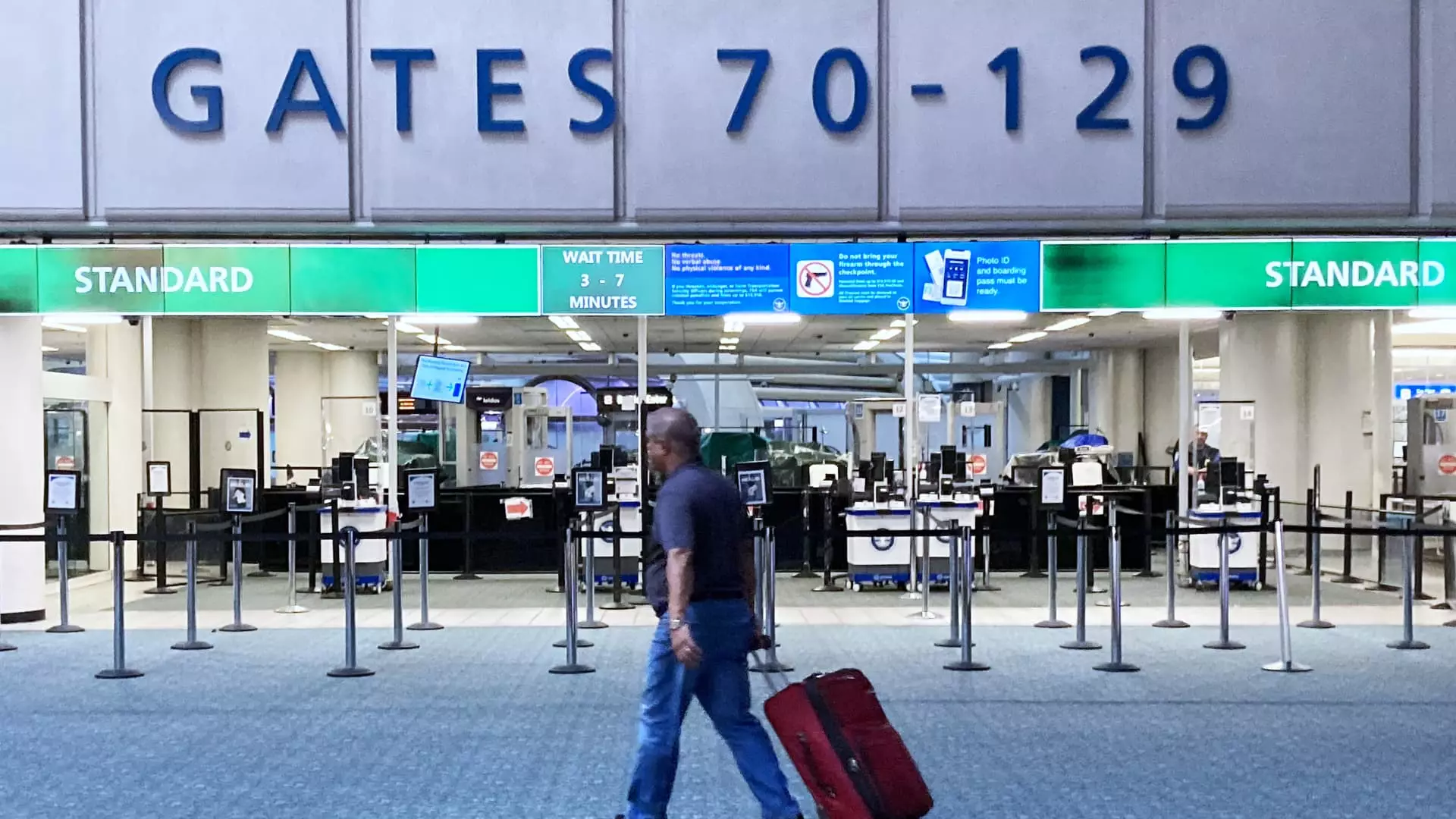As the holiday season approaches, an imminent government shutdown is threatening to disrupt travel plans for millions of Americans. The political impasse within Congress has escalated, particularly following a failed vote on a short-term funding bill that had the backing of President-elect Donald Trump. Without a resolution by 12:01 a.m. ET this Saturday, government operations will cease, potentially impacting hundreds of thousands of civil servants who would be furloughed. The consequences of this shutdown extend far beyond Washington, D.C., with the travel industry poised to incur staggering losses.
The most immediate effect of a government shutdown is the furloughing of federal employees. According to estimates by the U.S. Travel Association, the ramifications for the travel sector alone could amount to a loss of $1 billion per week. This staggering figure underscores the significant role that government operations play in facilitating travel and tourism. Geoff Freeman, president of the U.S. Travel Association, has highlighted the inherent absurdity of expecting crucial personnel, such as TSA officers and air traffic controllers, to work without compensation during a peak travel time. These government workers are deemed essential, which means they have no choice but to continue their duties, even as they face the uncertainty of when or if they will be paid.
With airlines forecasting record-breaking passenger volumes for the upcoming holiday season, the stakes could not be higher. The Transportation Security Administration (TSA) is gearing up to screen over 40 million travelers between now and January 2. United Airlines has announced ambitious plans to transport nearly 10 million passengers from December 19 through January 6, a 12% increase compared to last year. However, if a government shutdown occurs, the TSA has warned that this could lead to longer wait times at airports, as their personnel would have to continue to work without pay, compromising their morale and efficiency.
The federal designation of air traffic controllers and TSA agents as essential employees raises significant questions about the operational integrity of air travel during a shutdown. Past shutdowns have demonstrated that the effects can ripple through the entire aviation sector, as seen during the lengthy shutdown from late 2018 to early 2019. That particular shutdown resulted in widespread delays, highlighting how a single governmental disruption can have cascading effects on an already strained transportation system.
Compounding the challenges posed by a potential shutdown is the current leadership vacuum in the Federal Aviation Administration (FAA). With FAA chief Mike Whitaker announcing his resignation amidst the transition to a new administration, concerns about the future of air traffic modernization and hiring practices become paramount. Delta Air Lines CEO Ed Bastian has articulated the necessity for the new FAA administrator to prioritize these issues to ensure that air travel is not only efficient but also safe.
The importance of having a proactive approach to the challenges ahead cannot be overstated. Given the expected upsurge in travelers and the potential impact of a shutdown, the aviation industry must strategize effective responses. Failure to modernize air traffic systems and adequately staff essential positions could mean a tumultuous holiday travel experience for many Americans.
As the clock ticks down to the potential shutdown, the urgent need for bipartisan cooperation in Congress has never been clearer. Lawmakers face mounting pressure to prevent this scenario, which would only exacerbate an already complex situation during one of the busiest travel periods of the year. Economically, the implications of the shutdown are dire, not only for the government workers directly affected but also for the wider implications on the travel and tourism sector and the national economy.
The looming government shutdown serves as a sobering reminder of how political conflicts can intrude upon the lives of everyday citizens, particularly during pivotal moments such as the holiday season. The stakes are high, and the time for constructive dialogue and compromise is critical — not just for the sake of the federal workforce, but for the millions who rely on seamless travel during the holidays. As the situation unfolds, all eyes will be on Congress to act swiftly and avoid further disruptions.

Leave a Reply